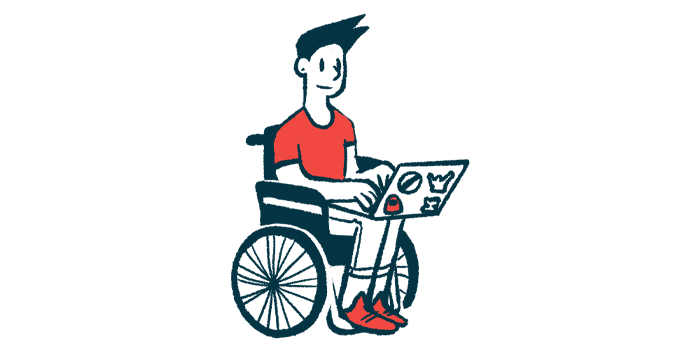U-M Student Disability Advocate Garners Neubacher Award

A University of Michigan (U-M) senior with spinal muscular atrophy (SMA) has won the school’s James T. Neubacher Award for his efforts to help make the campus — and everywhere else — more accessible to people with physical disabilities.
Vincent Pinti, a political science major minoring in Spanish, received the annual award Oct. 29 during a virtual ceremony.
During his time at U-M, he’s held the university accountable for its stated goal in its diversity, equity, and inclusion plan: Creating an inclusive campus community where all “members are welcomed and supported and differing perspectives and contributions are sought out and valued,” according to a university press release.
The Neubacher Award is presented annually to a U-M faculty or staff member, student, or graduate for significant achievements in advocating for or advancing disability rights or justice, empowering those who have disabilities, or heightening the accessibility of disability inclusion programs and services.
Because of his disability, Pinti, who uses a wheelchair, knows firsthand what it’s like to feel alone within a large institution such as Michigan.
“It seems at a first glance, a naked eye view, there are not many people here that look like me, that share my lived experience, that empathize with the adversity that I experience,” said Pinti, who next plans to attend law school and become a legal advocate for the disabled.
“It can feel very lonely, and it becomes growingly challenging to be able to teach and share the life I was given with the world,” Pinti said of having SMA, which is characterized by progressive muscle weakness and atrophy. The genetic neuromuscular disorder mostly affects motor function, but also can cause speaking, swallowing, and breathing problems, along with other symptoms.
Shortly after arriving on campus, Pinti decided to use student government to promote disability advocacy and to establish a more equitable community.
“There is no room for doubt, uncertainty, apathy, or passing the buck,” he said. “It is all of our responsibilities to make sure every student feels welcome here.”
One issue on which Pinti has focused is addressing the current dearth on campus of personal assistants and home health aides — a growing crisis for people with disabilities well beyond U-M, as well as for senior citizens in many states.
At U-M, Pinti recently sponsored and won passage of a Central Student Government resolution that creates an internal scholarship for students employed as personal care assistants. Such a scholarship would have the added benefit of providing work experience to students majoring in a healthcare-related profession, the university noted.
To make it easier to find personal assistance services — a task that usually falls to those with disabilities — Pinti also has called on the university to establish a database of personal-assistant jobs at U-M.
Pinti plans to continue his advocacy work beyond graduation. In fact, he hopes to use a potential law degree to explore how the law can better support disabled people.
“People with disabilities have such little control over their destinies — who they can marry, where they work, how much income they can have, where they live,” he said. “We are in the 21st century. There is no legitimate reason that these barriers still exist, so I want to be a catalyst for their erosion.”
The award was established in 1990 to memorialize Jim Neubacher, a U-M alumnus, former Detroit Free Press columnist, and advocate for people with disabilities.








